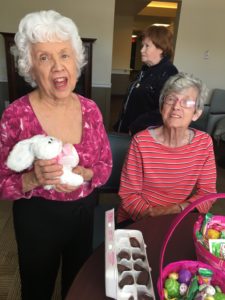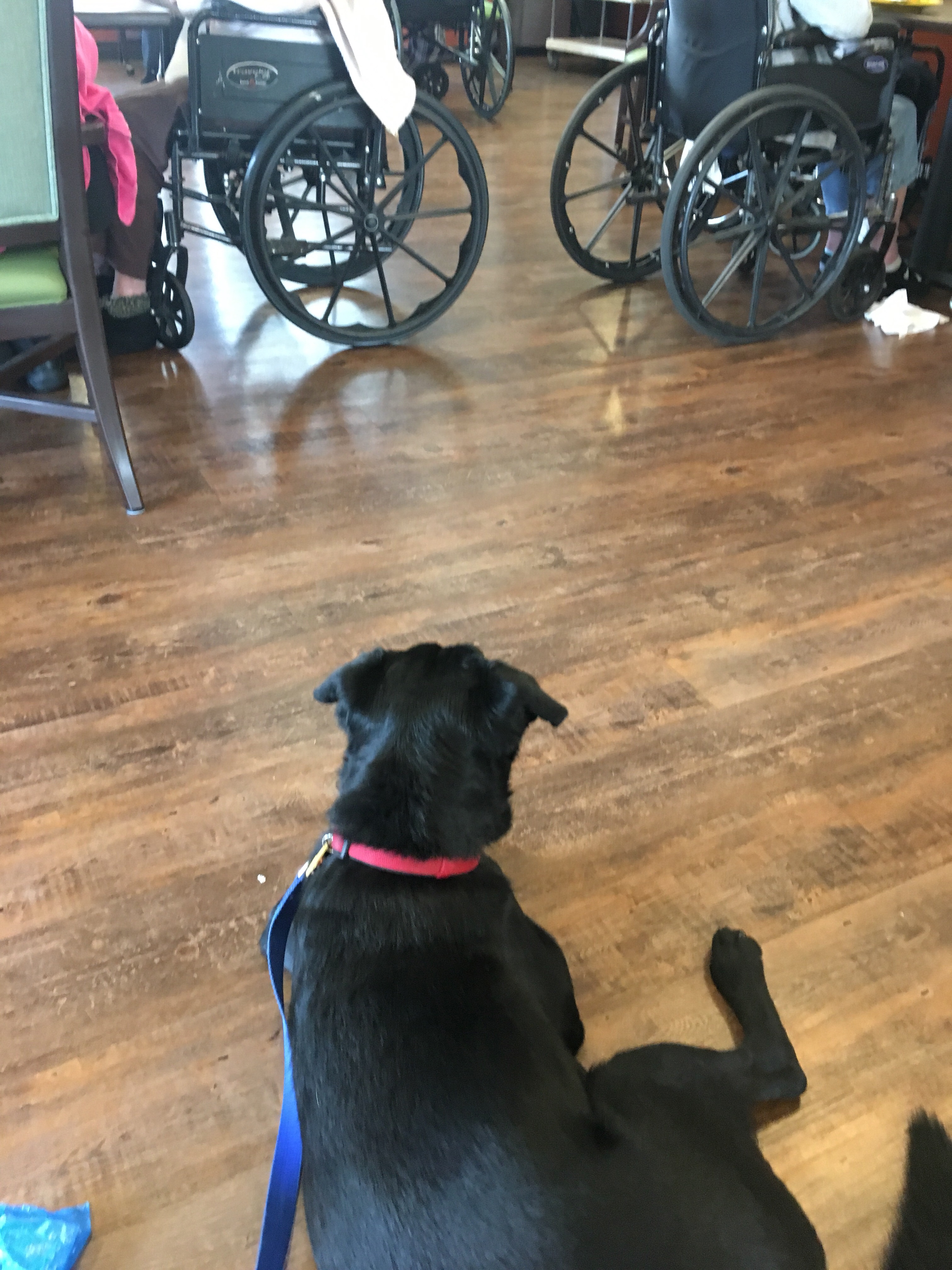“She’s my very best friend,” my mother said. “Friends are important.”
Other than Edie, her closest friend in grade school, I’ve never known my mother to have a girlfriend, let alone a “very best” friend. She’s never been chummy with other women, a self-professed seeker of solitude. But finding a best friend in the very place I worried she would never adapt to?
Almost as startling as her disrobing in the care home parking lot after our walk down the greenbelt yesterday.
 Mom’s acceptance of this new world continues to shatter my expectations. I worried she’d never join in. Last week, she led a gardening activity, helping other residents plant marigolds and marjoram. I worried she’d want to go back to Maine. Now, when I take her out to lunch, she can’t wait to return to her “house.” And her bestie.
Mom’s acceptance of this new world continues to shatter my expectations. I worried she’d never join in. Last week, she led a gardening activity, helping other residents plant marigolds and marjoram. I worried she’d want to go back to Maine. Now, when I take her out to lunch, she can’t wait to return to her “house.” And her bestie.
Did you know: Loneliness could be as dangerous to your health as smoking 15 cigarettes a day?



 And now, Mom’s caregiving team has a four-legged addition.
And now, Mom’s caregiving team has a four-legged addition.